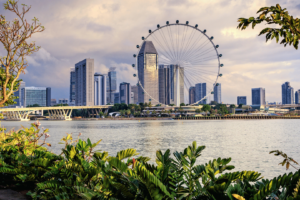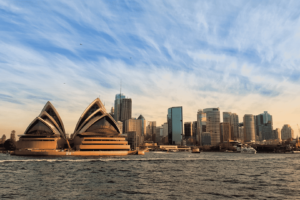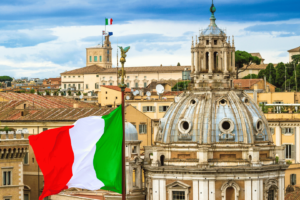Rising Trend of Second Citizenship among Residents in the GCC Region
Trend of Second Citizenship
Maryam Jamal
For several decades, the Gulf Cooperation Council (GCC) region has established itself as a prime hub for foreign investment and entrepreneurial growth. Attracted by the abundant opportunities, a substantial number of expatriates have relocated to cities such as Dubai, Doha, Jeddah, and Riyadh, seeking to advance their wealth and career aspirations. Over the years, these settlers have effectively leveraged the favorable business climate of the region, resulting in a significant accumulation of wealth.
As wealth continues to rise among the residents of the GCC, the demand for alternative residency and citizenship has surged. Despite a deep attachment to the organized and streamlined lifestyle and business climate of the region, many Gulf residents seek to broaden their global impact, reach, and interests. Recognizing the importance of seamless mobility for conducting their affairs, they value the convenience of access and flexibility in various parts of the world. Dubai, considered a premier global hub, has exemplified this trend, with over 30,000 inbound and outbound flights recorded at Dubai International Airport in January 2023 alone.
The notion of acquiring multiple citizenships or residency permits holds a strong appeal for Gulf residents. Offering a multitude of benefits, including enhanced security, social stability, travel, investment, business ventures, retirement planning, and beyond, this prospect is a desirable option for those who have called the GCC region ‘home’ for several decades. As they have become detached from their countries of origin and grown familiar with the concept of being a “global citizen”, obtaining multiple citizenships appears to be a logical step toward realizing their global ambitions.

The Gulf region is home to many expatriates
The GCC region is home to the largest expatriate population in the world, with foreigners constituting over half of the total population. This has enabled the formation of extensive networks across the globe, positioning the region as a pivotal center for business. Many expatriates in the GCC have invested both within and outside of the region, diversifying their portfolios by purchasing properties, investing in financial products, or establishing companies globally. Furthermore, their education at prestigious universities in the US or Europe has exposed them to diverse backgrounds and lifestyles, allowing them to compare and contrast the advantages and disadvantages of residing in the GCC or abroad. For instance, they are well-versed in the differences between the social security benefits of being a European resident or citizen versus being a Gulf expatriate, having experienced both first-hand.
Families in the GCC region are increasingly seeking to secure their children’s future through alternative citizenship. Possession of second citizenship for Gulf expatriates offers numerous opportunities, including access to better educational prospects for their children, a secondary residence, investment possibilities, and pension plans, among others.

Why should Gulf residents get second citizenship?

Business Opportunities
Gulf residents often possess passports that offer limited access to key business centers such as Europe, the United States, the United Kingdom, China, Hong Kong, Singapore, and others. In a highly globalized business environment, with GCC companies competing on a global scale, the ability to conduct business and travel freely across the world has become imperative. However, weak passports may impede access to these critical business hubs and stifle growth in various ways, such as through company formation, visa requirements, or other expansion opportunities. The limitations posed by weak passports, in areas such as banking, shipping, travel, finance, and others, can pose significant barriers for Gulf entrepreneurs seeking to achieve their global business aspirations. Obtaining second citizenship can help overcome these challenges and provide a pathway to expand their networks, increase opportunities, and enable unrestricted travel for business purposes.

International Investment and Financial Options
The acquisition of secondary residency or citizenship by Gulf-based entrepreneurs and business individuals has enabled them to establish offshore companies, establish bank accounts, and disperse their wealth to various locations. The possession of second citizenship enables them to diversify their assets across the globe with fewer impediments than those with limited passports. As an illustration, Iranians residing in the Gulf, who have been hindered from diversifying their assets worldwide or acquiring properties because of economic sanctions, have addressed these difficulties by obtaining second citizenship for themselves and their families. With second citizenship, foreign entrepreneurs can have easy access to financial resources globally and avail favorable tax regimes in other countries. The availability of multiple investment avenues and benefits in the financial sector has made residency and citizenship through investment programs increasingly appealing to entrepreneurs and business owners.

Safety and Security
With the increasing warnings of a global economic recession from esteemed international organizations such as the IMF, many business owners are bracing for a potentially worse outcome in 2023. To mitigate potential losses, companies are adopting cost-cutting measures and implementing strategies to safeguard their operations. The rapidly changing political landscape in the past decade, along with economic uncertainty fueled by the pandemic, evolving post-pandemic markets, and the possibility of further sanctions on countries like Russia and Iran, has led many Gulf families to consider obtaining second citizenship as a means to secure their future both domestically and abroad.

Education and Health
As second citizenship grants enhanced mobility and access, Gulf residents, particularly those with limited passport options, can benefit from world-class education and healthcare opportunities. This includes enrolling in premier international schools and seeking medical treatment at renowned hospitals globally. An example of this is the utilization of the US EB5 visa by some Gulf expatriates, providing a pathway to obtaining permanent residency in the US, and granting their offspring unrestricted access to elite educational institutions and medical facilities without the need for additional visa applications or sponsorships.

Benefits for generations to come
The ability to pass on citizenship to offspring is a feature of several residency and citizenship through investment programs. This feature offers a continuity of benefits, including the ability to live, work, study, and travel abroad with ease, to future generations. As such, Gulf residents can ensure that their children and their descendants have access to the same opportunities even if their place of origin does not provide adequate citizenship. Furthermore, many of these programs allow for this transfer of citizenship without the requirement of physical relocation.




